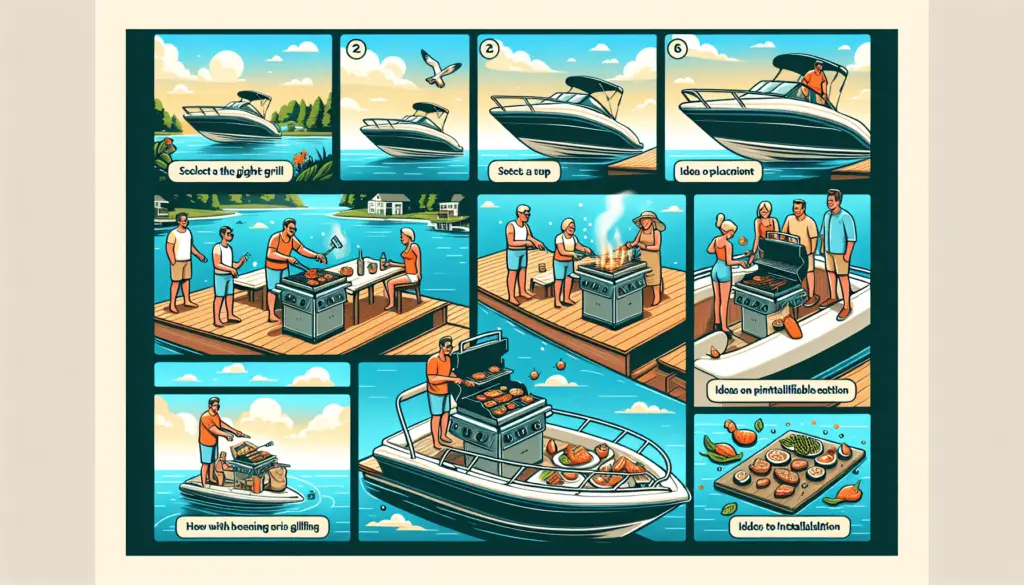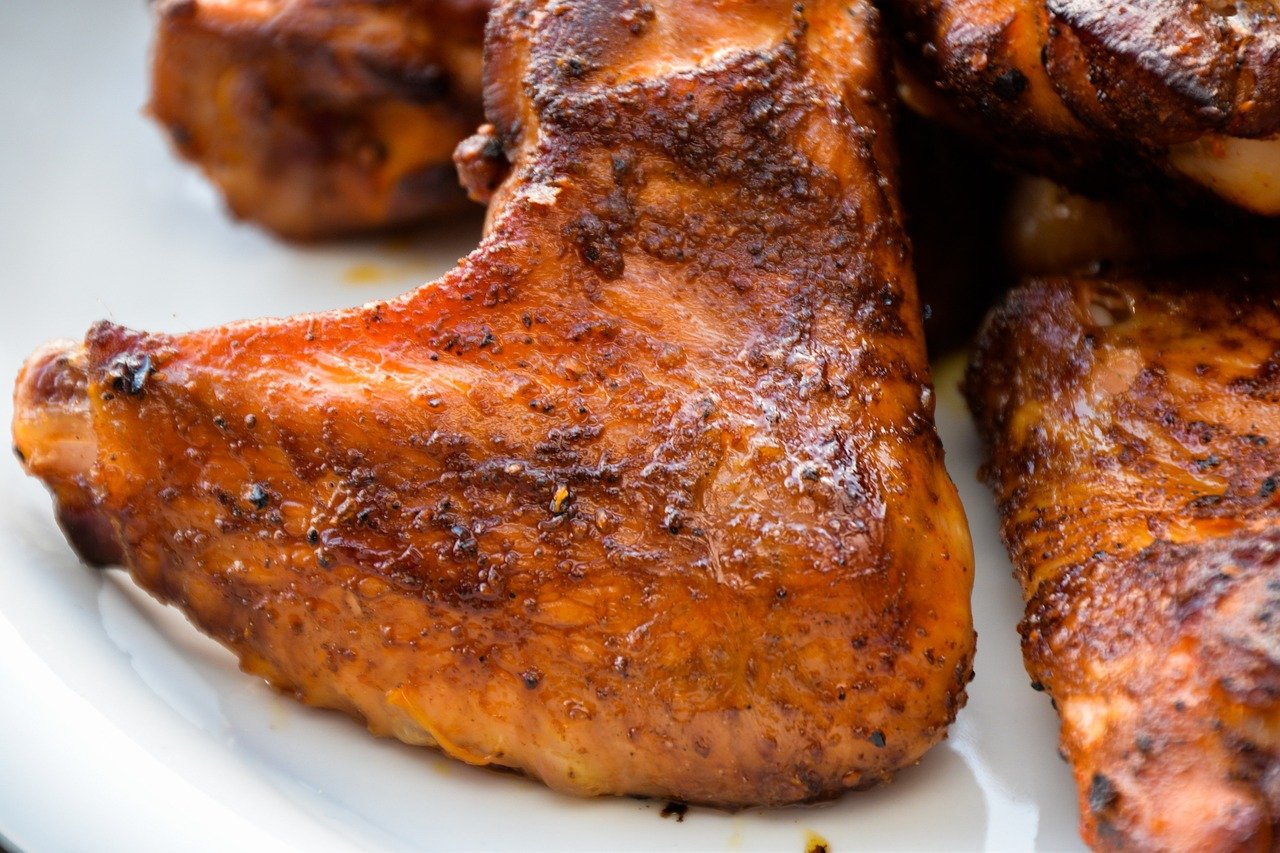So you’ve got your trusty boat and a love for barbequing, but what if you could combine the two? Adding a custom BBQ grill to your boat can open up a whole new world of culinary possibilities while you’re out on the water. Picture yourself grilling up perfectly charred burgers, sizzling steaks, and mouthwatering seafood, all while enjoying the gorgeous views and fresh air. In this article, we’ll guide you through the process of adding a custom BBQ grill to your boat, from selecting the right grill to ensuring it’s properly installed for your safety and convenience. Get ready to take your boating experience to a whole new level of deliciousness!
Choosing the Right BBQ Grill
When choosing a BBQ grill for your boat, there are several factors to consider. First, think about the size and weight of the grill. You’ll want to ensure that it is small enough to fit comfortably on your boat without taking up too much space. Additionally, you’ll want to choose a grill that is lightweight, as you don’t want it to be too cumbersome to move around.
Another important consideration is the materials used in the construction of the grill. It is recommended to look for marine-grade materials that can withstand the harsh conditions of being exposed to saltwater and the sun. These materials are designed to resist corrosion and will help ensure that your grill lasts for many boating seasons to come.
Finally, it’s crucial to choose a grill with a secure mounting system. Since your boat will be rocking and moving while you’re grilling, you’ll want a grill that can be securely attached to your boat. Look for a grill that has a sturdy and reliable mounting system to ensure your safety and the safety of others onboard.
Assessing the Space on Your Boat
Before installing a BBQ grill on your boat, it’s essential to assess the available space. Measure the area where you plan to install the grill to ensure that it will fit properly. Consider the space requirements not only when the grill is in use but also when it’s not in use, as you’ll still need your boat to be functional and accessible.
In addition to measuring the available space, consider the clearance around the grill. You’ll want to make sure there is enough room for you or others to move around comfortably without the risk of accidentally bumping into the grill. This includes considering the height clearance above the grill as well.
Proper ventilation is also a crucial factor to consider when assessing the space on your boat. Make sure the area where you plan to install the grill has adequate ventilation to prevent the buildup of smoke and ensure the safety of everyone on board.
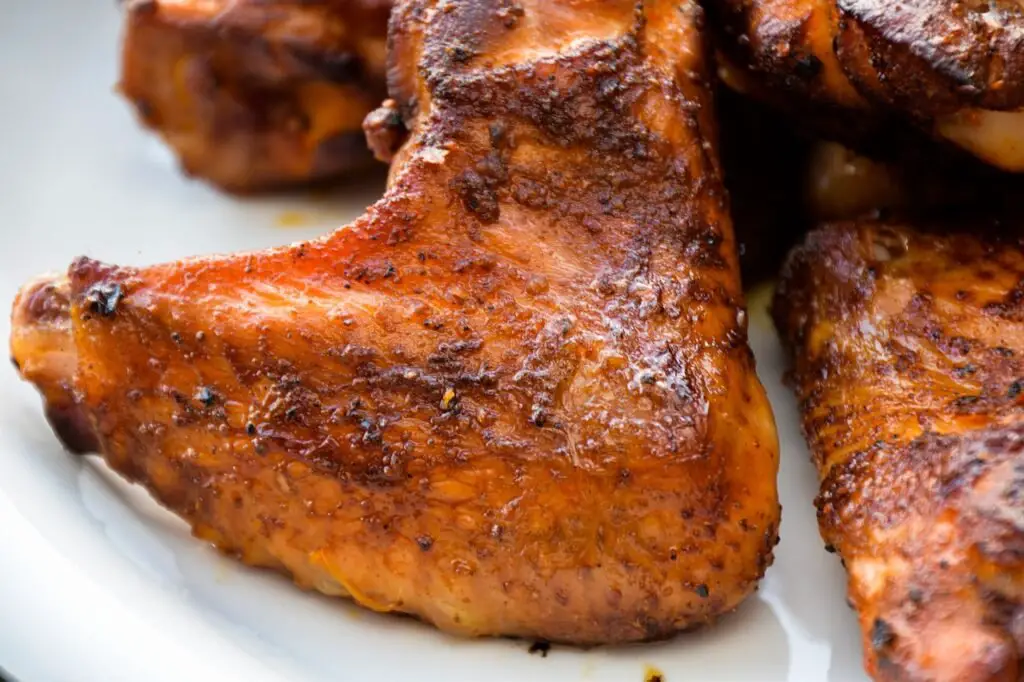
Determining the Fuel Type
Choosing the right fuel type for your BBQ grill is an important decision. There are three main options to consider: gas, charcoal, or electric.
Gas grills are popular for their convenience and quick heat-up time. They use propane or natural gas as fuel and provide consistent heat for cooking. However, you’ll need to consider the availability of fuel and storage space on your boat. Ensure that you have enough fuel for your grilling needs and that you have a safe and secure storage solution for the gas tanks.
Charcoal grills offer a unique smoky flavor to your food but require more time and effort to set up and heat. Consider the availability of charcoal and the space required for storing it on your boat. Additionally, you may want to explore portable options like disposable charcoal grills if storage space is limited.
Electric grills are a convenient option if you have access to shore power or a generator. They are easy to use and require no fuel storage. However, keep in mind that electric grills may not provide the same flavor as gas or charcoal grills.
Ultimately, your choice of fuel type will depend on your cooking preferences, the availability of fuel, and the space limitations on your boat.
Installing the Grill Mount
Once you’ve chosen the right BBQ grill for your boat, it’s time to install the grill mount. Start by selecting a suitable location for the mount. Consider where you want the grill to be placed and ensure that it is easily accessible for cooking. Also, think about potential obstructions or interference with other boat equipment.
Before installing the mount, check if any structural reinforcements are needed. Depending on the weight of the grill and the location you’ve chosen, you may need to reinforce the area to ensure stability and safety. Consult with a professional if you’re unsure about the structural integrity of your boat.
Follow the manufacturer’s instructions to secure the mount properly. Each grill and mount may have different installation requirements, so it’s important to read and follow the instructions carefully. Securely fasten the mount, ensuring that it is tightly secured and won’t move or shift while you’re grilling.
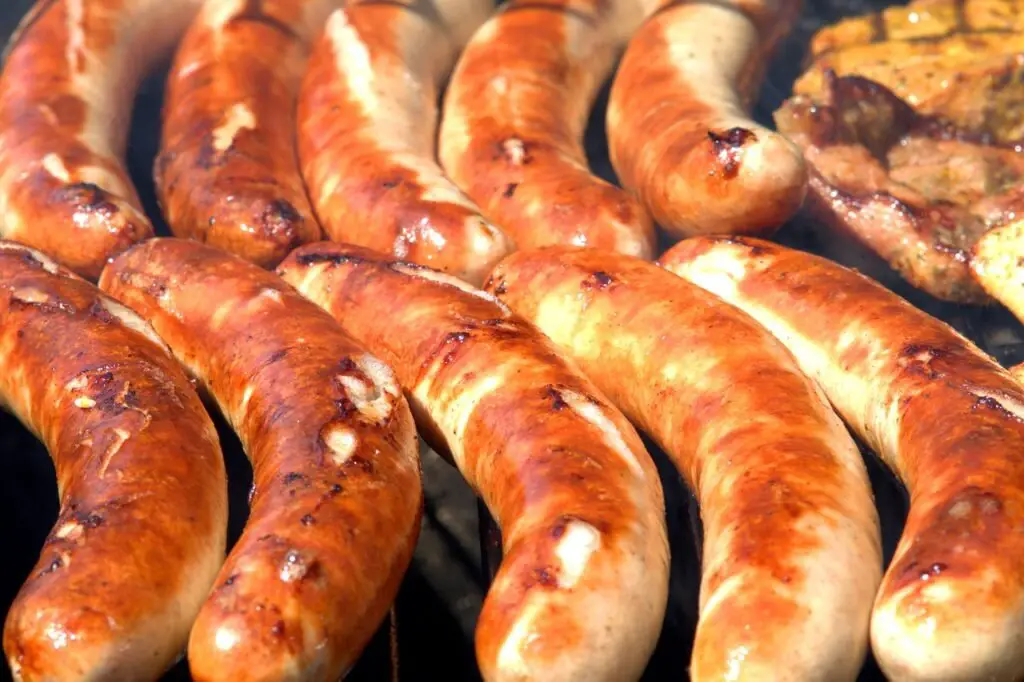
Preparing the Boat for Grill Installation
Before installing the grill, it’s essential to prepare the area where it will be placed. Start by cleaning the designated area thoroughly. Remove any dirt, debris, or residue that may interfere with the grill’s installation or performance.
Next, remove any flammable materials that are in close proximity to the grill installation area. This includes removing any cushions, covers, or other items that could potentially catch fire if too close to the grill. Creating a clear and safe space around the grill is crucial for fire prevention and overall safety.
Additionally, ensure that you have proper access to the fuel source and storage. If you’re using a gas or electric grill, make sure the appropriate connections are easily accessible and properly installed. Additionally, consider the storage requirements for your specific grill and ensure that you have a designated space for it when it’s not in use.
Connecting the Grill to Boat Systems
Depending on the type of grill you’ve chosen, there may be additional steps involved in connecting it to your boat systems.
For gas grills, ensure that you have the proper fuel line connections in place. It is crucial to follow all safety guidelines and best practices when connecting gas lines. If you’re unsure, it’s best to consult a professional to ensure a proper and secure connection.
Electric grills will require the installation of electrical wiring. Make sure to follow all electrical safety protocols and consult with an electrician if you’re not familiar with electrical work. It’s essential to have a safe and reliable power source for your electric grill to prevent any electrical hazards.
For charcoal grills, consider portable fuel options. Since charcoal grills don’t require a direct connection to boat systems, you have more flexibility in terms of fuel options. Explore portable charcoal options, such as disposable grills or compact charcoal containers, to minimize storage space and maximize convenience.
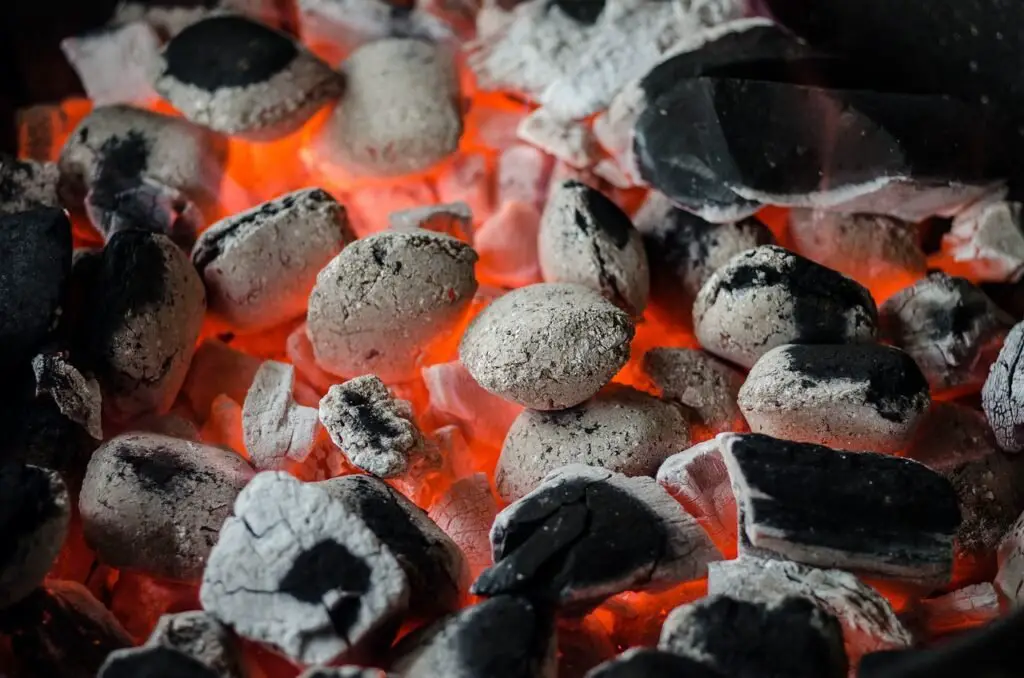
Safely Securing the Grill
Safety is paramount when it comes to grilling on your boat. To ensure the safe installation of your grill, use appropriate fasteners and hardware. Make sure to choose materials that are suitable for marine environments and can withstand the rigors of boating.
Consider additional safety features like a lid latch. A lid latch will secure the grill’s lid and prevent it from opening unexpectedly, reducing the risk of burns or accidents. You may also want to consider using grill covers or other protective accessories to safeguard your grill when it’s not in use.
Check for stability and tighten any loose parts before using the grill. The vibrations and movements of the boat can cause screws and fasteners to become loose over time. Regularly inspect and tighten any loose parts to ensure that your grill remains secure and stable.
Testing the Grill
Before you start cooking, it’s essential to test the grill to ensure that everything is working correctly. Check for proper ignition and flame distribution. Make sure that all burners, if applicable, are lighting up properly and that the flame is evenly distributed across the entire cooking surface.
In addition to the ignition and flame distribution, ensure that the heat output is sufficient for your cooking needs. The grill should reach the desired temperature and maintain it consistently throughout the cooking process. If you notice any issues with the heat output, consult the manufacturer’s instructions or seek professional assistance if necessary.
Verify that all controls and features are working correctly. Make sure that knobs, buttons, or switches are functioning properly and that you have full control over the grill’s settings. It’s important to be able to adjust the heat levels and other functions to achieve the desired cooking results.
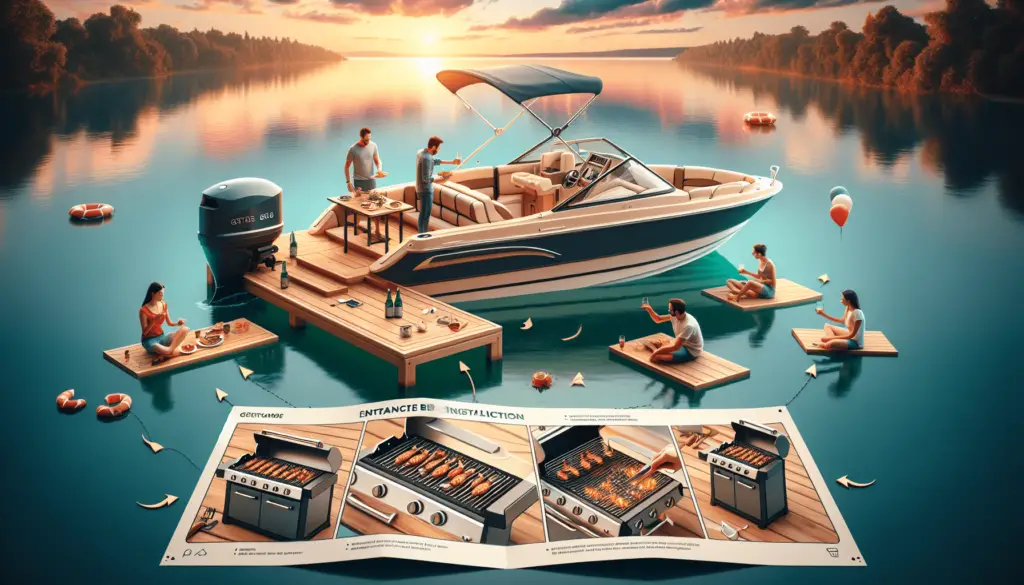
Maintaining and Cleaning the Grill
Regular maintenance and cleaning are essential to keep your BBQ grill in optimal condition. Regularly clean and inspect the grill for corrosion. Use appropriate cleaning materials and follow the manufacturer’s instructions to prevent damage to the grill’s surfaces.
Follow the manufacturer’s instructions for maintenance. Different grills have different maintenance requirements, so it’s important to follow the guidelines provided by the manufacturer. This may include routine inspections, lubrication of moving parts, and other necessary maintenance tasks.
When the grill is not in use, remove and store it properly. This will protect it from the elements and prolong its lifespan. Choose a secure storage location that is protected from moisture and other potentially damaging factors.
Enjoying BBQ on Your Boat
Now that you’ve successfully added a custom BBQ grill to your boat, it’s time to enjoy some delicious meals on the open water. Invite friends and family to join you for a boat BBQ and create memorable moments together.
Experiment with different recipes and grilling techniques to expand your culinary repertoire. Whether you’re grilling burgers, seafood, or vegetables, there is a wide range of options to explore. Take advantage of the unique experience of grilling on your boat and create mouthwatering dishes that will impress everyone onboard.
Remember to always practice proper safety measures while grilling, especially on a boat. Keep a fire extinguisher nearby and know how to operate it effectively. Ensure that there is always a responsible adult supervising the grilling process and keeping an eye on potential hazards.
With the right BBQ grill, proper installation, and safety precautions in place, you can enjoy the experience of grilling on your boat to the fullest. Set sail and savor the flavors of outdoor cooking while creating treasured memories on the open water.
